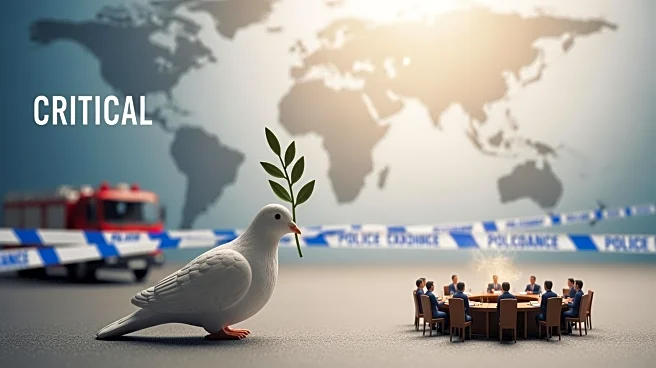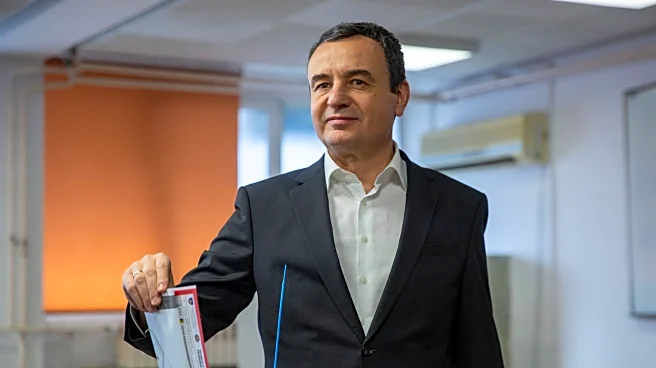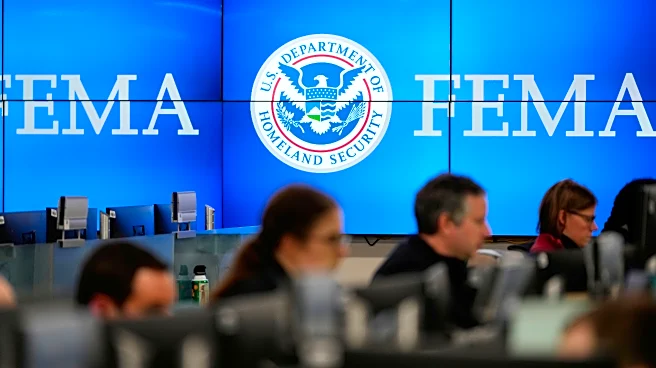What's Happening?
President Trump proposed an armistice at the current battle lines in Ukraine during a meeting with Ukrainian President Volodymyr Zelensky at the White House. The proposal aims to halt the ongoing conflict
between Russia and Ukraine, with Trump seeking to replicate his success in brokering a ceasefire in the Middle East. Zelensky accepted the proposal as a starting point for further negotiations, emphasizing the need for pressure on Russian President Vladimir Putin to achieve a lasting peace. The meeting follows Trump's phone call with Putin, where discussions on the conflict were held.
Why It's Important?
Trump's proposal for an armistice represents a significant diplomatic effort to end the conflict in Ukraine, potentially reshaping the geopolitical landscape in Eastern Europe. The move could influence U.S.-Russia relations, as well as the broader international community's approach to conflict resolution. For Ukraine, the proposal offers a potential path to peace, though the success of such efforts depends heavily on Russia's willingness to negotiate. The implications for global security and U.S. foreign policy are substantial, as the conflict in Ukraine remains a critical issue in international diplomacy.
What's Next?
The next steps involve further negotiations between the U.S., Ukraine, and Russia, with Trump set to meet Putin in Budapest. The U.S. administration must navigate the complexities of international diplomacy, balancing support for Ukraine with efforts to maintain stable relations with Russia. The outcome of these discussions could shape future U.S. foreign policy decisions and influence international arms agreements. Stakeholders, including European allies and defense contractors, will be closely monitoring developments, as any decision could impact regional security dynamics.
Beyond the Headlines
The ethical considerations of negotiating peace in a conflict with deep historical and cultural ties raise questions about the role of external mediators in global diplomacy. The proposal could set a precedent for how the U.S. engages in conflict resolution, potentially influencing future diplomatic strategies. Additionally, the cultural and historical ties between Ukraine and Russia add layers of complexity to the conflict, challenging the effectiveness of external mediation.











